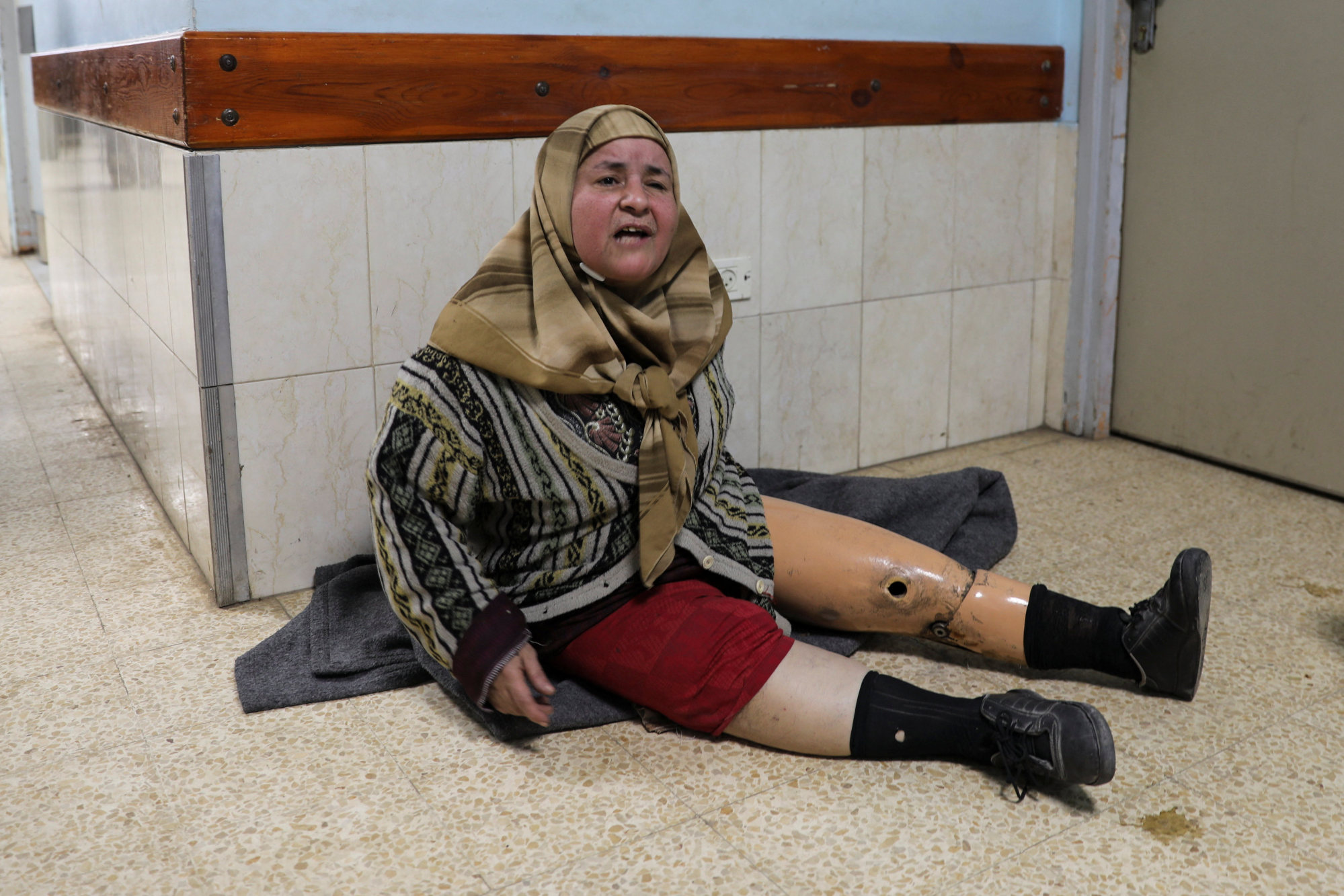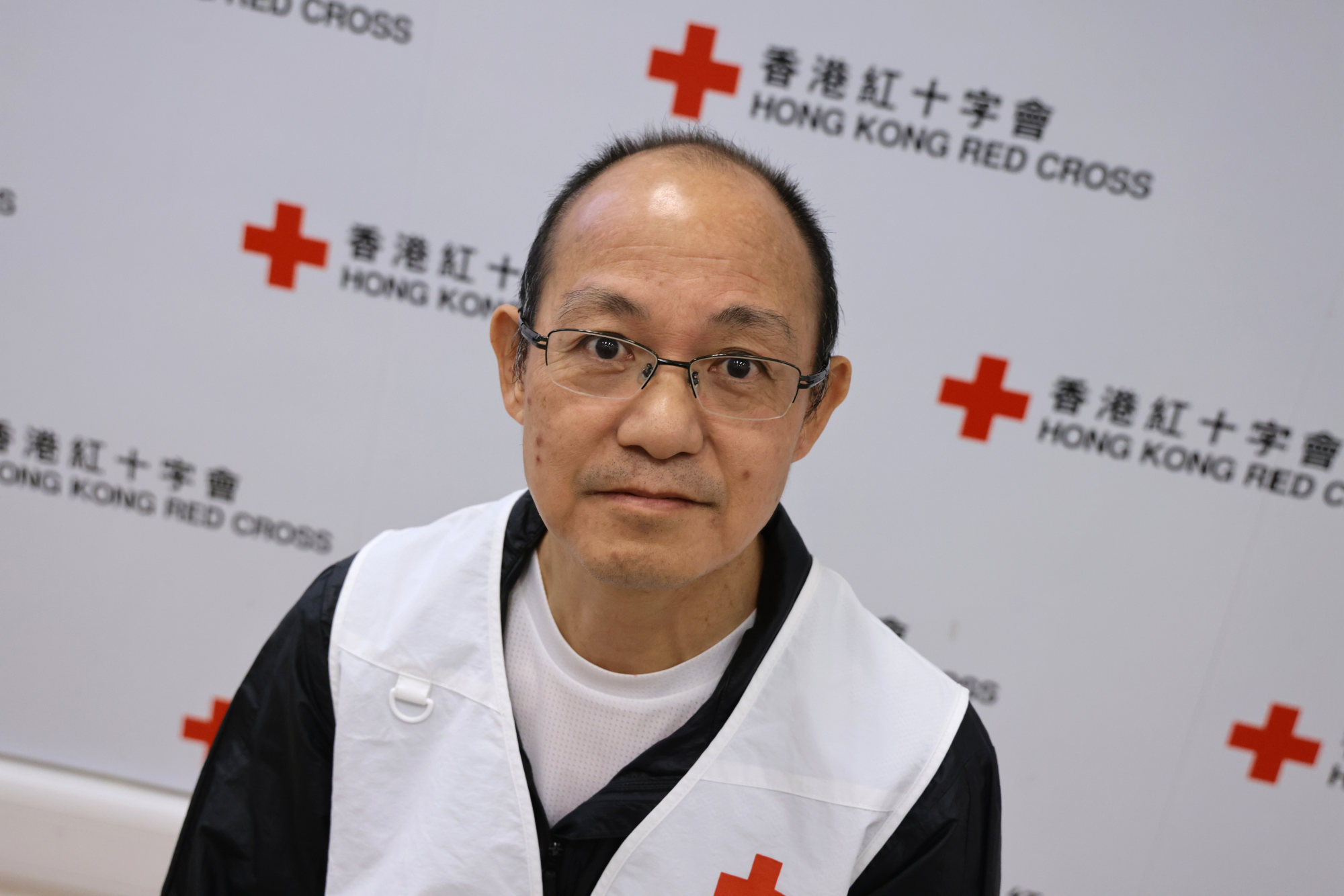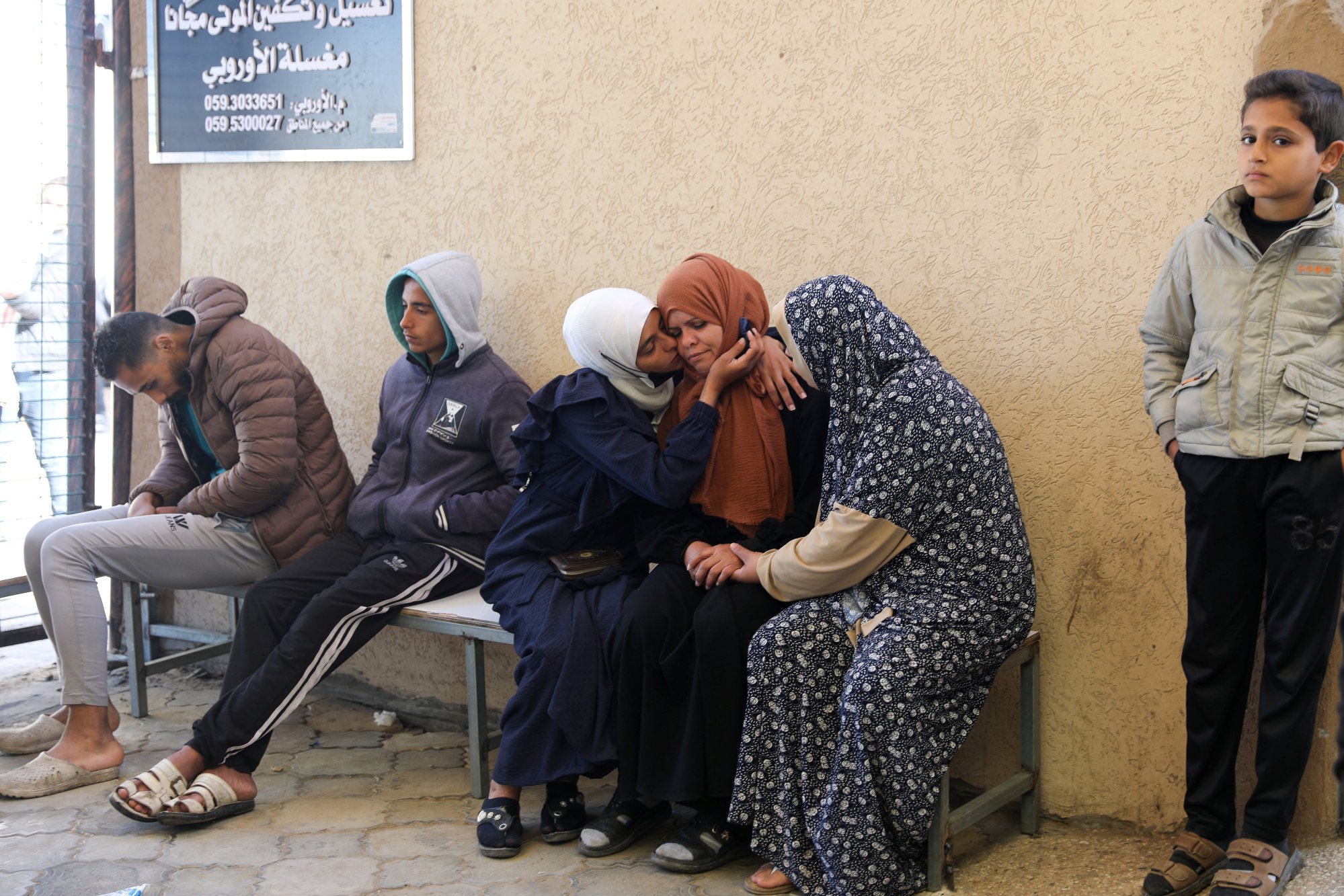
Israel-Gaza war: Hong Kong doctor recalls horror but also inspiring scenes of working at Palestinian hospital
- Au Yiu-kai spent six weeks serving at European Gaza Hospital as part of Red Cross-managed effort
- While he encountered young burn victims who had lost their parents, he also witnessed a profound sense of community and dedication to rebuilding
Hongkonger Au Yiu-kai was volunteering as a doctor in the southern Gaza Strip and sleeping in the corridor of a hospital dormitory when he heard an explosion about 150 metres (490 feet) away.
It was his eighth time working in the war zone and his latest experience was the most profound one, the 65-year-old said, as he shared insights from his six-week trip with the press on Monday.
Returning to Hong Kong last week, Au said he hoped to bring news back and send messages to the city that it could continue to be an international centre to extend its caring about global society.
“At the very least, it is essential to show concern,” said Au, who has committed his time to various global emergency medical operations in conflict and disaster areas since 2002.

The intensified armed conflict in Israel and the Gaza Strip since early October last year has resulted in more than 28,000 deaths. At least 75 per cent of the people in Gaza have been forced to leave their homes.
“The field hospital resembles a refugee camp,” he said, adding that some patients were transferred from the northern Gaza Strip, which had suffered much of the damage. The relatives of patients were living everywhere in the hospital, including the staircases and corridors.
“The scale and impact of this artillery fire are more severe than previous conflicts,” he said.
Serving at the European Gaza Hospital, Au noted that many of the most severe burn victims were vulnerable groups, particularly children and the elderly.
China urged to boost Middle East ties in peace drive as Gaza risks spill over
He witnessed the extreme hardship of civilians, including brothers who lost their parents in the war, with half of the 13-year-old’s body seriously burned and the five-year-old needing a limb amputation to save his life. A 68-year-old woman suffered burns to more than 40 per cent of her body.
Au and a team of about 12 medical volunteers deployed by the International Committee of the Red Cross attended to 70 to 80 patients, mainly those who required long-term treatment rather than the emergency patients that local medical staff took care of.
The biggest difficulty was the scarcity of resources, Au said, so he and his medical colleagues were extremely careful about using what was available when treating patients.

On the first day of his arrival, three trucks of supplies were waiting to enter the rescue area, and they were still waiting to gain access on the day he left. “We never knew when the supplies would arrive,” he said.
Less than 30 per cent of the hospitals were functioning in Gaza, he estimated, adding that the number of ones able to function dropped as they were constantly under attack.
Au also considered this trip the most emotional one.
Despite the ongoing warfare outside, many patients, their families and healthcare workers feel a sense of security under the shelter of the hospital, he said.
Blinken heads back to Middle East to press for Gaza truce
“The presence of us representing the Red Cross on-site further helps boost their security,” he said.
He was impressed that many people prayed at the hospital on Friday noon.
“In a sorrowful environment, I witnessed the trauma and profound relationships within families, together with the religious faith and sincerity,” he said.
“Not a single patient was left without someone caring for them. This mutual support between individuals helps us navigate through difficult times together.”

He said while 10 to 20 per cent of the patients would attempt to request a medical referral from a doctor to go abroad, most of the locals would prefer to stay to reconstruct their homeland.
“I can sense their profound helplessness and uncertainty about the future,” he said. “There is hope, but they are unsure when it can become a reality.”
‘If tanks storm in, it will be a massacre’: Gazans in Rafah fear Israeli assault
Despite risking his own safety to help in various war zones over the years, Au said he never considered himself a hero.
“From the very beginning of my voluntary career, I don’t consider myself great or a hero, and I know I can’t accomplish everything or save everyone,” he said.
“My purpose is to use my knowledge and expertise to help those who are facing greater difficulties, to do my best and to provide support and hope.”

